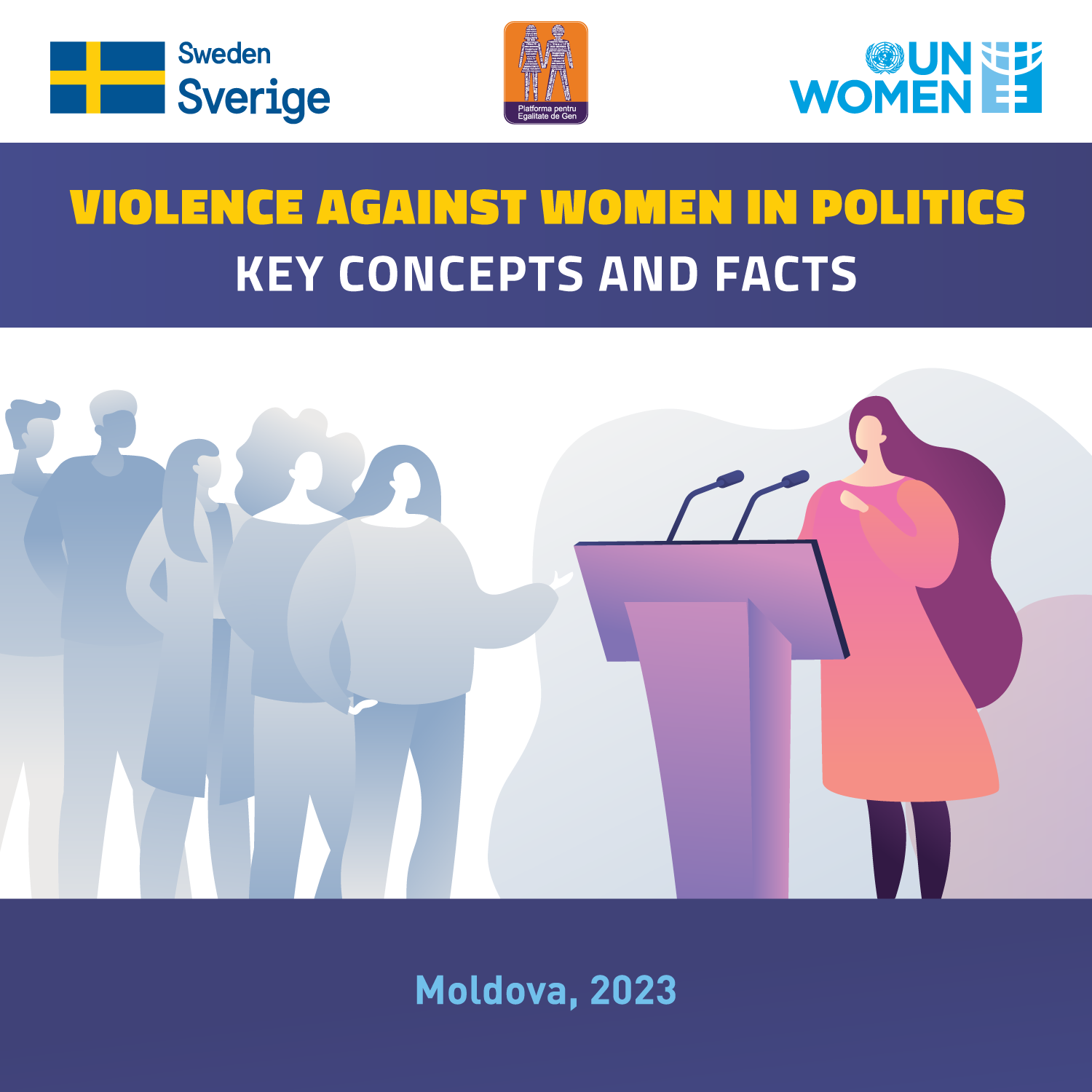Violence against women in politics in Moldova: an escalating reality in need of immediate solutions
Date:
Over the past few decades, there has been a commendable rise in women’s participation in politics and decision-making processes across Moldova. However, this advancement has brought to light an alarming issue: violence against women in politics. This multifaceted phenomenon encompasses physical, verbal, psychological and sexual abuse, as well as online and technology-facilitated violence. Such forms of violence not only harm the lives and well-being of women but also discourage their active participation in politics. In this context, UN Women Moldova, together with its partners and with the financial support of Sweden, is undertaking a series of initiatives to raise awareness about violence against women in politics and during elections. These efforts will hopefully propel this critical issue onto the public and political agendas.

Data on Moldova’s 2023 local elections indicate that only 30.4 per cent of the total candidates for mayor were women, revealing a modest increase of just three per cent compared to the 2019 local elections and only seven per cent compared to the 2011 local elections.1 The same study suggests that the low presence of female candidates in the 2023 local elections can be attributed to social norms and stereotypes, which fuelled women's lack of confidence and uncertainty about running.
Dominika Stojanoska, UN Women Moldova’s Country Representative, highlights that despite notable progress in gender equality and women’s representation in Moldovan politics, additional efforts are needed to combat gender stereotypes, violence against women in political life and the sexist discourse they face. “Acting now, united in our efforts, is essential for truly representative and functional democracies where both women’s and men’s voices are heard at all decision-making levels,” she said.
To better explain the phenomenon and its consequences, UN Women Moldova, in collaboration with the Regional Office for Europe and Central Asia and with the financial support of Sweden, has published a set of informative cards detailing key concepts about violence against women in politics. These cards explain different forms of this violence, identify the targets, outline the long-term effects and propose actions for authorities, media, political parties and each of us to prevent this issue.
Violence against women in politics reinforces traditional social and political structures, and it is frequently targeted at women leaders who challenge patriarchy and harmful social norms.
Her Excellency Katarina Fried, the Ambassador of Sweden to the Republic of Moldova, reaffirms Sweden's strong, long-standing and unwavering support for women’s equal participation in decision-making processes at all levels. “We urge everyone to join our call to stop all forms of violence in politics, including acts of violence targeting women specifically because of their gender,” she said. “It's time to encourage women to report acts of violence to the competent authorities and not to give up on politics, because their voices matter. The voices of both women and men matter if we want truly inclusive policies that benefit everyone."
Among UN Women's recent initiatives is a video called “You're Not Alone: Report and Pursue Your Dream,” which encourages women politicians, candidates and witnesses to report incidents of violence and not be demoralized by incitement or denigrating statements against women in politics.
Victoria Ignat, a Programme Analyst at UN Women Moldova, emphasizes that violence against women in politics is a serious problem both globally and locally, requiring a serious and resolute approach. “Creating a safe and equal environment for women to express their opinions without fear of violence or harassment is crucial,” she said. “Through education, appropriate legislation and support, we can contribute to preventing this phenomenon and promoting more inclusive and gender-balanced policies."
According to a new report published by the Center “Partnership for Development,”2 the belief that women should be more involved in private and family life than in public life is still widespread. Over 50 per cent of the population either fully or partially agrees with the idea that women should take care of household chores more than men, and over 60 per cent believe that men should be a family’s primary financial provider. The data from 2023 reveal a worsening trend in perceptions regarding women's involvement in decision-making processes. Around 27 per cent of citizens believe that women have no place in politics and 18.4 per cent argue that women are less capable and should not hold leadership positions.
To challenge these ideas, UN Women Moldova launched the video "Join me. Run for Elections!" in July 2023 to encourage women, in all their diversity, to participate in the general local elections on 5 November 2023 and aspire to become mayors or councillors.
1 Source (unofficial translation): “Mayors in the shadows: A study on the representation of women and men in elective positions at the town halls' level,” published by the Center “Partnership for Development” in cooperation with the Civic Coalition for Free and Fair Elections, November 2023.
2 Source (unofficial translation): “Discovering a patriarchal status quo. Where are we heading? Study on the population's perceptions regarding gender roles in the decision-making process," November 2023.